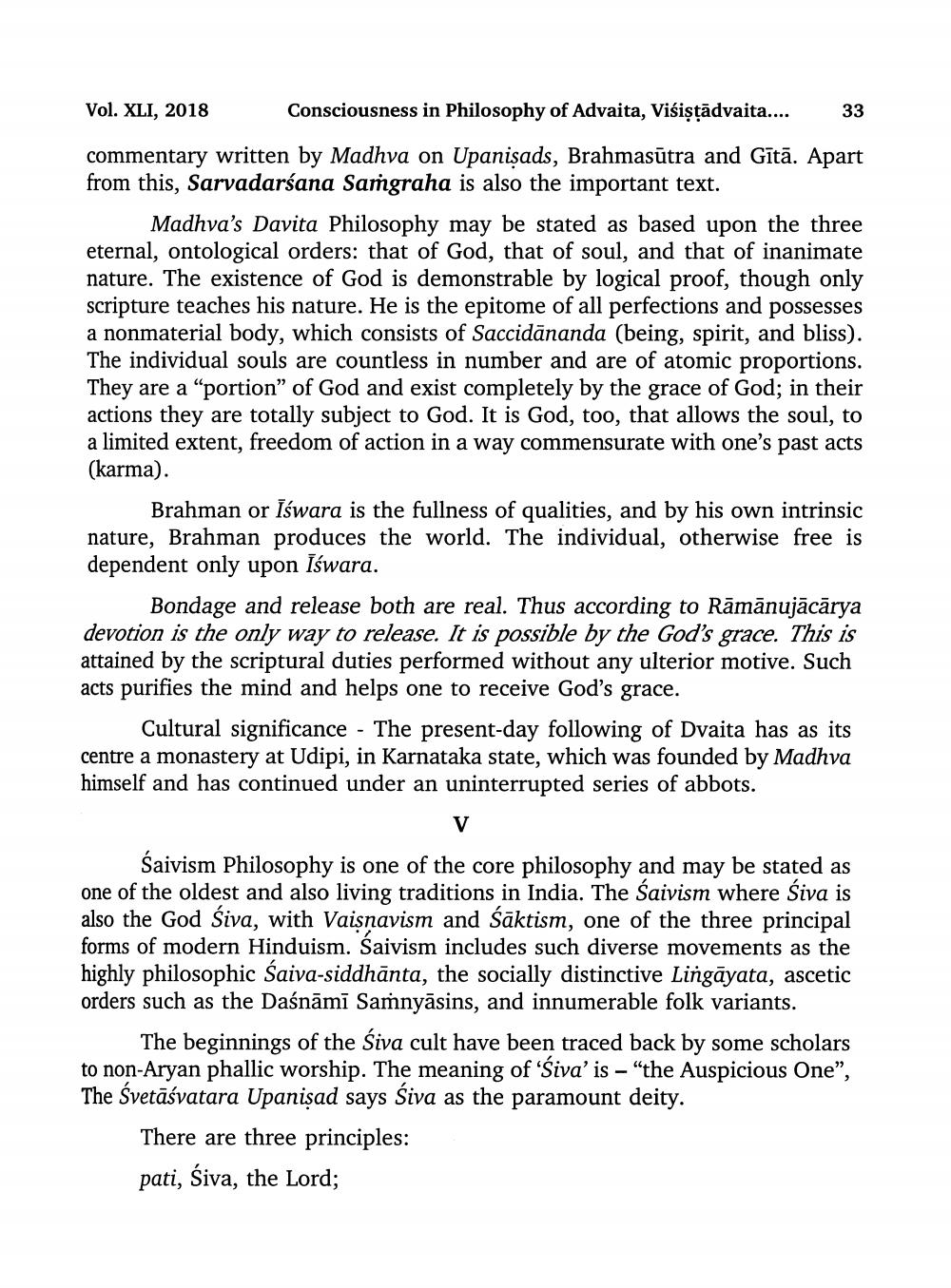________________
Vol. XLI, 2018
Consciousness in Philosophy of Advaita, Viśiştādvaita....
33
commentary written by Madhva on Upanisads, Brahmasūtra and Gītā. Apart from this, Sarvadarśana Saṁgraha is also the important text.
Madhva's Davita Philosophy may be stated as based upon the three eternal, ontological orders: that of God, that of soul, and that of inanimate nature. The existence of God is demonstrable by logical proof, though only scripture teaches his nature. He is the epitome of all perfections and possesses a nonmaterial body, which consists of Saccidānanda (being, spirit, and bliss). The individual souls are countless in number and are of atomic proportions. They are a “portion" of God and exist completely by the grace of God; in their actions they are totally subject to God. It is God, too, that allows the soul, to a limited extent, freedom of action in a way commensurate with one's past acts (karma).
Brahman or īswara is the fullness of qualities, and by his own intrinsic nature, Brahman produces the world. The individual, otherwise free is dependent only upon Iswara.
Bondage and release both are real. Thus according to Rāmānujācārya devotion is the only way to release. It is possible by the God's grace. This is attained by the scriptural duties performed without any ulterior motive. Such acts purifies the mind and helps one to receive God's grace.
Cultural significance - The present-day following of Dvaita has as its centre a monastery at Udipi, in Karnataka state, which was founded by Madhva himself and has continued under an uninterrupted series of abbots.
V
Saivism Philosophy is one of the core philosophy and may be stated as one of the oldest and also living traditions in India. The Saivism where Siva is also the God Śiva, with Vaişnavism and Śāktism, one of the three principal forms of modern Hinduism. Saivism includes such diverse movements as the highly philosophic Saiva-siddhānta, the socially distinctive Lingāyata, ascetic orders such as the Daśnāmī Samnyāsins, and innumerable folk variants.
The beginnings of the Śiva cult have been traced back by some scholars to non-Aryan phallic worship. The meaning of 'Siva' is - "the Auspicious One", The Svetāśvatara Upanisad says Siva as the paramount deity.
There are three principles: pati, śiva, the Lord;




